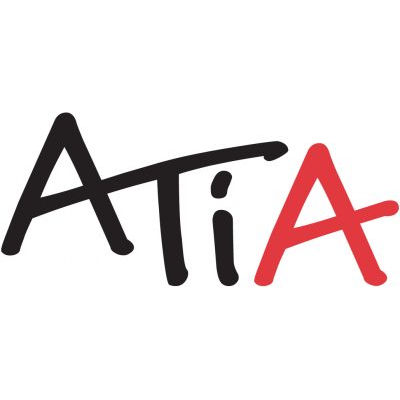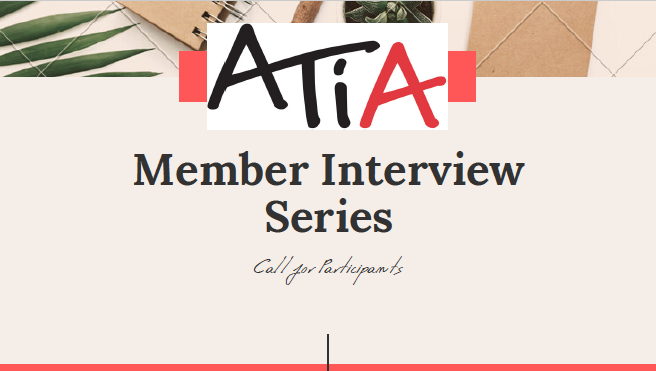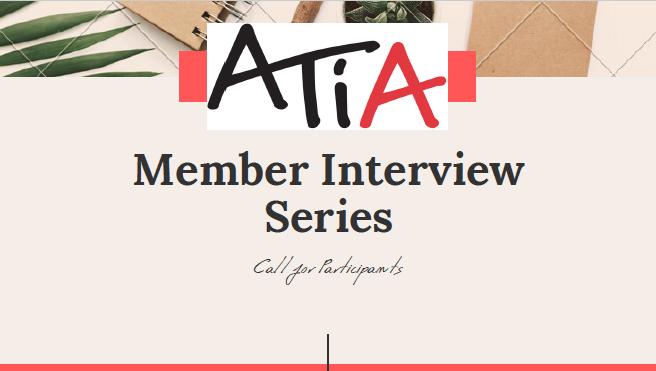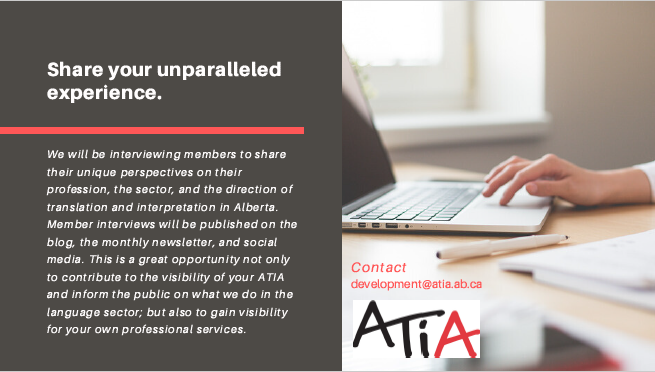As members of the ATIA, we are all accountable for the development of our profession – both through our own professional practice and through the public-facing aspects of our field. There are many ways you can engage with your ATIA to forward your own career and the sector as a whole, and every contribution elevates all of us.
With Title Protection in the works, there has never been a better time to get involved in spreading the word about the ATIA in your professional and social communities!
Ways to engage with your ATIA:
- Like, Share, and Follow us on social media to support and promote the visibility of the ATIA and its members:
Facebook: @ATIAlberta
Twitter: @ATIAinfo
LinkedIn: Association of Translators and Interpreters of Alberta
Instagram: @translatorsinterpretersab
- Know of a job posting that would be best filled by an ATIA member? How about a great professional development or volunteer opportunity? If you know of any opportunities relevant to the translation and interpretation professions, please forward them to development@atia.ab.ca to share them with your fellow ATIA members.
- Contribute to the development of the language sector by sharing your insight with the community through our Blog or Member Interview Series.
- Join our Outreach Team!
An important step in the Title Protection process involves a survey of businesses, organizations, and government departments that require or may require translation and interpretation services. If you are interested in supporting ATIA outreach activities, please contact development@atia.ab.cato get started! Each outreach engagement can be done remotely, and takes around 15 minutes.
For more information on Title Protection, engaging with the ATIA, or how you can contribute to the development of the language sector in Alberta, please contact development@atia.ab.ca.




